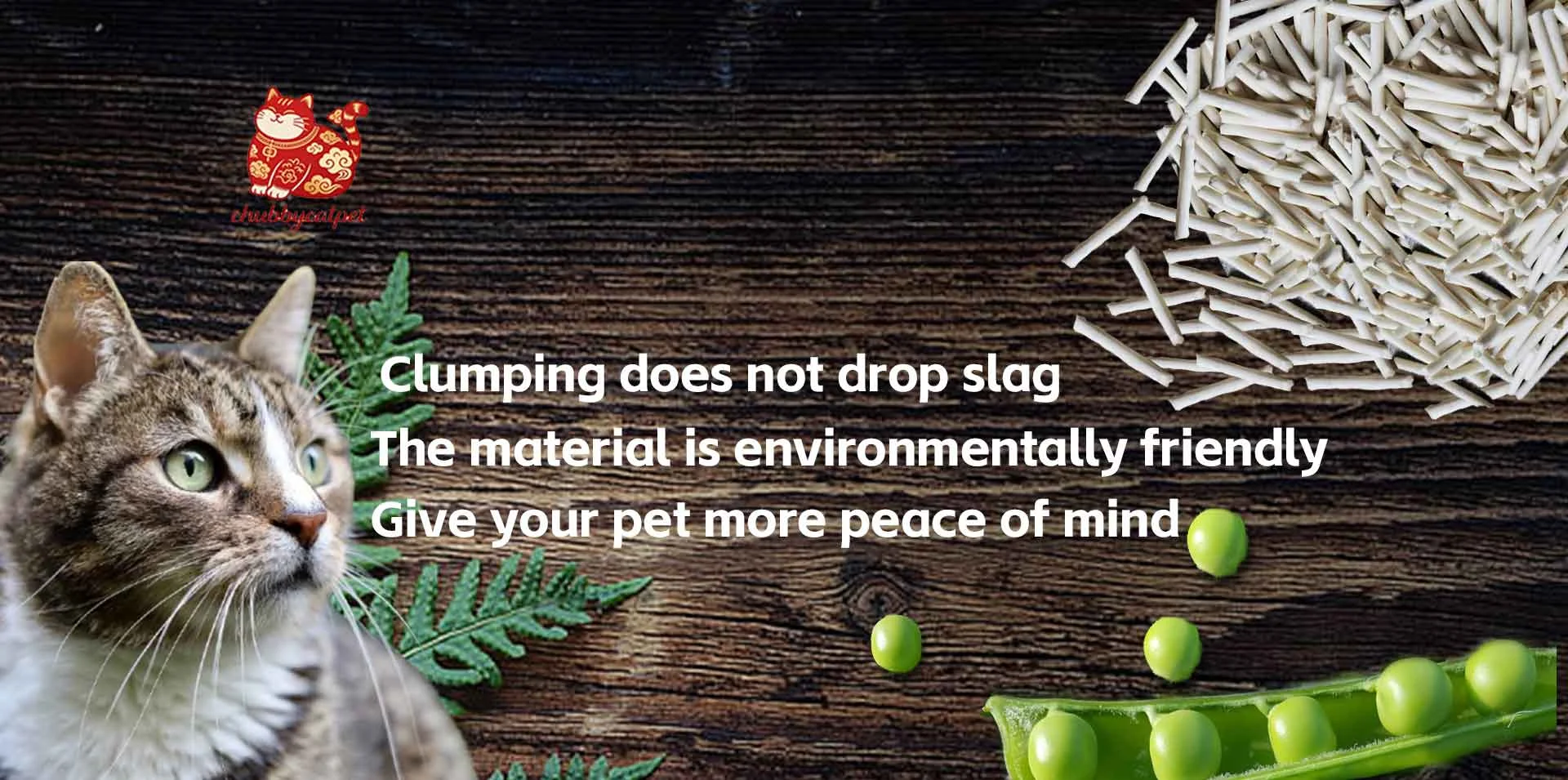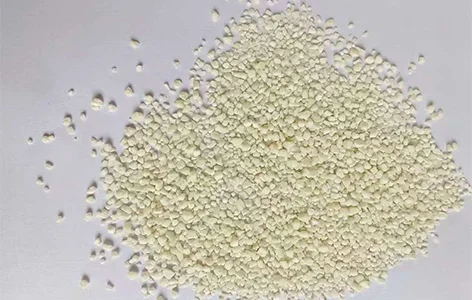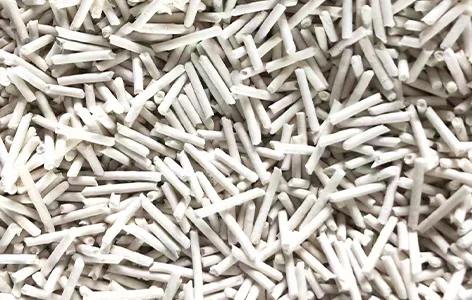Cassava vs Tofu Cat Litter Insights Every Pet Owner Should Know
2025-08-22

Cassava and tofu cat litters are plant-based, eco-friendly options that come straight from nature—cassava roots for one, soybean scraps for the other. Tofu litter stands out with quick clumping, awesome odor control, barely any dust, and a safe formula, making it a go-to for cats with allergies or homes bustling with multiple pets. Cassava litter soaks up liquid like a champ and forms tight clumps, but its farming process might leave a slightly larger mark on the environment. You can flush both in small batches or compost them, but tofu often takes the crown for being greener and performing better. If you’re a pet owner who wants a healthy cat, an easy-to-clean litter box, and a happier planet, Fat Cat Tofu Cat Litter is a stellar choice.
What Is Cassava Cat Litter Made From?
Cassava cat litter starts with the starchy roots of the cassava plant, grown in places like Brazil or Nigeria. These roots get processed into tiny granules that clump well and suck up moisture fast. The star player here is cassava itself—no surprise there! It grabs liquid quickly, locks into solid clumps, and keeps smells under control. Since it’s biodegradable, it’s way kinder to the earth than old-school clay litters. Plus, it’s low-dust, so your home stays tidier. I remember switching my tabby, Luna, to cassava litter last year. The sneezing she got from clay litter? Gone. It was such a game-changer to see her so comfortable!

Composition and Importance of Tofu Cat Litter
Tofu cat litter is crafted from soybean leftovers, bits of tofu, or plant fibers like corn or pea. These get molded into pellets or granules that look a little like tofu—hence the name. Cat owners rave about it because it breaks down naturally and tackles odors like a pro. It’s eco-friendly, dust-free, and non-toxic, so it’s safe for your cat and family, even in a small apartment. Picture this: a litter box in your living room that doesn’t kick up dust or stink up the place. That’s the magic of tofu litter! Honestly, it’s a relief not to cough every time I scoop.

Which One Is Greener for the Planet?
Both litters decompose naturally, but they impact the environment differently. Tofu litter uses soybean waste from things like soy milk production, so it doesn’t demand extra crops or resources. That makes it super planet-friendly. Cassava litter is biodegradable too, and it’s a solid green option, but growing cassava needs land and water, which bumps up its footprint a bit. Tofu’s clever use of food-grade leftovers gives it a sustainability edge. If you want a high-performing, eco-conscious choice, check out Fat Cat Tofu Cat Litter. Its bio-enzyme tech, low-dust formula, and great odor control make it a win for your cat and the earth.
Clumping Power and Odor Control Comparison
Clumping is key for easy litter box cleanup. Tofu litter forms clumps in just 3 seconds after soaking up liquid, making scooping a total breeze. Cassava clumps quickly too, but tofu’s clumps are tougher and less likely to crumble. Even if some tofu litters take a smidge longer to clump, they stay solid when you scoop.
For odor control, tofu litter often comes with natural scents like green tea or peach, which hide smells beautifully. Brands like Fat Cat toss in antibacterial particles to stop bacteria, keeping the box fresh for days. Cassava handles odors well, but tofu’s scents and bacteria-fighting tricks often steal the show. My neighbor Sarah, with her two rambunctious cats, loves the peach-scented tofu litter. She says her apartment smells like a fruit stand instead of a litter box!
Moisture Absorption Comparison
Thanks to their plant-based roots, both litters soak up liquid well. Cassava’s starchy makeup pulls in moisture fast. Tofu, though, has a light, airy structure that gives it a slight edge. It keeps your cat’s paws dry, fights off bacteria, and makes the litter box comfier. For example, in humid spots like Miami, tofu litter stays drier longer, which cats who hate wet paws really appreciate. Nobody wants a grumpy kitty tracking damp litter everywhere!
Safety for Cats With Allergies
Both litters are great for cats with sensitivities, but tofu pulls ahead with its ultra-low dust. Fat Cat Tofu Cat Litter, for instance, goes through several dust-removal steps, keeping dust below 1%. That’s a big deal for cats with asthma or households with allergy-prone folks—it cuts down on sneezing and skin irritation. Cassava is low-dust too, but tofu’s extra care in processing makes it the safer pick for sensitive cats.
What If My Cat Eats Some Litter?
Cats are nosy little creatures and might nibble their litter. Good news: both cassava and tofu litters are safe in small amounts. Tofu litter often uses food-grade stuff like pea fiber or corn starch, so a tiny taste won’t hurt. Cassava, made from an edible root, is safe too, though it’s not as thoroughly tested as tofu. When my kitten Max munched on some tofu litter during his curious phase, I didn’t panic—knowing it’s food-grade was super reassuring.
Which Is Easier To Clean Every Day?
Tofu litter makes daily scooping a piece of cake. Its clumps don’t stick to the litter box and hold together when you scoop. Cassava clumps well too, but tofu’s smoother texture makes the job quicker. Both have bigger granules, so your cat tracks less mess around. Imagine no more litter crumbs all over your kitchen floor after your cat’s bathroom trip—such a small thing, but it saves so much sweeping!
Flushability of Cassava and Tofu Litters
You can flush both litters in small amounts to avoid pipe clogs, but take it easy. Tofu litter dissolves easily, so it’s a cinch to flush. Cassava can be flushed too, but check your local plumbing rules—it might not break down as fast. Always flush a little at a time to keep your pipes from throwing a fit.
Natural Decomposition of Cassava and Tofu Litters
Both litters break down naturally without hurting the environment. Tofu, made from recycled soy pulp, is awesome for home composting—just skip the pet waste to keep your garden safe. Cassava decomposes well too, so both are great for eco-minded pet parents.
Carbon Footprint During Production
Growing cassava needs land, water, and energy, which adds to its environmental impact. Tofu litter, on the flip side, uses leftovers from soy milk or tofu production, so it doesn’t require extra resources. That makes tofu the greener pick. Try Fat Cat Tofu Cat Litter for a sustainable choice that fits an eco-friendly lifestyle perfectly.
Value Over Time Comparison
Tofu litter might cost more upfront than clay or some cassava litters due to how it’s made. But its strong clumping and staying power mean you don’t need to replace it as often, which saves cash over time. For instance, a 6-pound bag of tofu litter lasted my one-cat home almost a month, while clay needed swapping every two weeks. That’s fewer trips to the store!
Replacement Frequency for Each Type
How often you change litter depends on your setup. Both cassava and tofu clump well and don’t stick to the box, so you only need to replace them in humid places or with multiple cats. In a single-cat home, both last a good while, making them super practical.
Trend Toward Plant-Based Litters
Pet owners are jumping on the plant-based litter bandwagon, and it’s easy to see why. As folks learn more about sustainability and keeping cats healthy, tofu and cassava litters are becoming household staples. They’re natural, work well, and keep your furry friend happy.
Importance of Ingredient Transparency
Knowing what’s in your cat’s litter is a big deal, especially with sensitive pets or kids around. Tofu litter uses pure plant ingredients, so it’s safe and green. Always check labels to see where the ingredients come from before picking a litter for the long term.
Choosing Based on Cat Behavior
If your cat’s a litter-kicker, go for tofu or cassava with larger granules—they’re less likely to get scattered. For cats who hate rough textures, tofu’s soft, even pellets feel nicer on their paws, which can stop them from avoiding the box.
Suitability for Multi-Cat Homes or Allergy-Prone Households
Low-dust plant-based litters are a lifesaver in homes with multiple cats or people with allergies. Their low-dust design cuts down on sneezing and skin issues, making them a smart choice for busy or sensitive homes.
FAQ
Q: Can I Compost Used Tofu or Cassava Cat Litter?
A: Yes, both break down naturally. If you’re composting for your garden, use only the litter itself, not the pet waste, to keep things safe.
Q: Which Type Tracks Less Around My Home?
A: Both have larger granules, so they stay put in the litter box, keeping your floors way cleaner.
Q: Is One Better Suited for Kittens?
A: Tofu litter often gets the nod for kittens. Its food-grade ingredients are safe if your curious little one takes a nibble.


